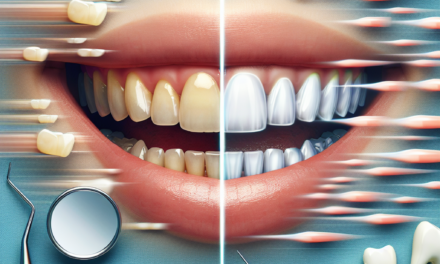Eligibility for Laser Hair Removal: Who Can Do It?
Laser hair removal has become one of the most popular cosmetic procedures in recent years, offering a long-term solution to unwanted hair. However, not everyone is a suitable candidate for this treatment. Understanding the eligibility criteria is crucial for anyone considering this procedure. This article will explore the various factors that determine who can undergo laser hair removal, including skin type, hair color, medical conditions, age, and gender. We will also discuss the importance of consulting with a qualified professional before proceeding with treatment.
Understanding Laser Hair Removal
Before diving into eligibility, it’s essential to understand what laser hair removal entails. The procedure uses concentrated light beams to target and destroy hair follicles, inhibiting future hair growth. The effectiveness of the treatment can vary based on several factors, including the contrast between the skin and hair color, the technology used, and the skill of the practitioner.
Laser hair removal is generally considered safe and effective, but it is not without risks. Side effects can include skin irritation, pigmentation changes, and in rare cases, scarring. Therefore, understanding who is eligible for this treatment is vital for ensuring safety and effectiveness.
1. Skin Type and Hair Color
One of the most significant factors influencing eligibility for laser hair removal is the contrast between skin type and hair color. The procedure works best on individuals with light skin and dark hair due to the way lasers target melanin.
Skin Types
Skin types are classified using the Fitzpatrick scale, which ranges from Type I (very fair skin) to Type VI (very dark skin). Here’s a brief overview:
- Type I: Very fair skin, often burns easily, rarely tans.
- Type II: Fair skin, burns easily, tans minimally.
- Type III: Medium skin, sometimes burns, tans gradually.
- Type IV: Olive skin, rarely burns, tans easily.
- Type V: Brown skin, very rarely burns, tans easily.
- Type VI: Dark brown or black skin, never burns, deeply pigmented.
Individuals with Type I to Type III skin are generally the best candidates for laser hair removal. The contrast between their lighter skin and darker hair allows the laser to effectively target the hair follicles without damaging the surrounding skin. Conversely, those with darker skin types (Type IV to VI) may face challenges due to the increased melanin in their skin, which can absorb the laser energy and lead to burns or pigmentation changes.
Hair Color
Hair color also plays a crucial role in determining eligibility. Laser hair removal is most effective on dark hair, as the laser targets the melanin in the hair follicles. Here’s how different hair colors fare:
- Black/Brown Hair: Best candidates due to high melanin content.
- Dark Blonde Hair: May see some results, but effectiveness varies.
- Light Blonde/Red Hair: Generally less effective due to low melanin levels.
- Gray/White Hair: Typically ineffective, as there is no melanin to target.
For individuals with lighter hair colors, alternative hair removal methods may be more suitable. However, advancements in laser technology, such as the use of Nd:YAG lasers, have improved outcomes for darker skin tones and lighter hair colors, although results may still vary.
2. Medical Conditions and Medications
Another critical aspect of eligibility for laser hair removal involves existing medical conditions and medications that may affect the skin or hair growth. Certain conditions can increase the risk of complications or reduce the effectiveness of the treatment.
Common Medical Conditions
Some medical conditions that may affect eligibility include:
- Skin Conditions: Conditions like eczema, psoriasis, or active acne can make the skin more sensitive and prone to irritation during laser treatment.
- Hormonal Imbalances: Conditions such as polycystic ovary syndrome (PCOS) can lead to excessive hair growth, but hormonal treatments may need to be stabilized before laser hair removal.
- Diabetes: Individuals with diabetes may have slower healing times and a higher risk of infection, which can complicate the procedure.
- Autoimmune Disorders: Conditions that affect the immune system may also impact healing and skin sensitivity.
Medications
Certain medications can also affect eligibility for laser hair removal. For example:
- Photosensitizing Medications: Drugs that increase sensitivity to light can lead to adverse reactions during treatment.
- Blood Thinners: These medications can increase the risk of bleeding and bruising during and after the procedure.
- Accutane: Individuals who have taken this acne medication must wait at least six months after completing treatment before undergoing laser hair removal due to skin sensitivity.
It is crucial for individuals considering laser hair removal to disclose their medical history and any medications they are taking during the initial consultation. A qualified practitioner can assess the risks and determine the best course of action.
3. Age and Gender Considerations
Age and gender can also influence eligibility for laser hair removal. While there are no strict age limits, certain considerations must be taken into account.
Age Factors
Most practitioners recommend that individuals be at least 18 years old before undergoing laser hair removal. This recommendation is based on several factors:
- Skin Development: Younger individuals may still be experiencing changes in their skin and hair growth patterns, making it difficult to predict the effectiveness of the treatment.
- Hormonal Changes: Adolescents and young adults may have fluctuating hormone levels that can affect hair growth.
- Informed Consent: Individuals under 18 may not fully understand the implications of the procedure, making informed consent challenging.
For older adults, there are generally no upper age limits for laser hair removal. However, older individuals may have more sensitive skin or underlying health conditions that could affect their eligibility. A thorough consultation is essential to assess individual circumstances.
Gender Considerations
While laser hair removal is often associated with women, men are increasingly seeking this treatment for various reasons, including:
- Cosmetic Preferences: Many men prefer a hair-free look for aesthetic reasons, particularly in areas like the back, chest, and shoulders.
- Hygiene: Some men find that removing body hair improves hygiene and reduces body odor.
- Sports Performance: Athletes may choose to remove body hair for performance reasons, particularly in swimming and cycling.
Both men and women can benefit from laser hair removal, but the approach may differ based on hair density, skin type, and treatment areas. Gender-specific considerations should be discussed during the consultation to tailor the treatment plan accordingly.
4. Pre-Treatment Consultation and Assessment
A pre-treatment consultation is a critical step in determining eligibility for laser hair removal. This session allows the practitioner to assess the individual’s skin type, hair color, medical history, and specific concerns.
What to Expect During the Consultation
During the consultation, several key aspects will be addressed:
- Medical History: The practitioner will review any existing medical conditions, medications, and previous hair removal methods.
- Skin Assessment: A thorough examination of the skin will help determine the appropriate laser type and settings for the individual.
- Hair Growth Patterns: Understanding the individual’s hair growth cycle is essential for scheduling treatments effectively.
- Realistic Expectations: The practitioner will discuss what results can be expected and how many sessions may be required for optimal results.
Patch Testing
In some cases, practitioners may perform a patch test on a small area of skin to assess how the individual’s skin reacts to the laser. This test can help identify any potential adverse reactions and ensure that the treatment is safe and effective.
Ultimately, the consultation is an opportunity for individuals to ask questions, express concerns, and gain a clear understanding of the procedure. It is essential to choose a qualified and experienced practitioner who can provide personalized recommendations based on individual needs.
5. Post-Treatment Considerations and Follow-Up
Understanding post-treatment care is just as important as knowing about eligibility. Proper aftercare can significantly impact the effectiveness of laser hair removal and minimize potential side effects.
Immediate Aftercare
After the procedure, individuals may experience some redness and swelling in the treated area. Here are some immediate aftercare tips:
- Avoid Sun Exposure: Protect the treated area from direct sunlight for at least two weeks to prevent pigmentation changes.
- Use Soothing Creams: Applying aloe vera or other soothing creams can help alleviate discomfort.
- Avoid Hot Showers: Hot water can irritate the skin; opt for lukewarm showers instead.
Long-Term Care
Long-term care is also essential for maintaining results and ensuring skin health:
- Follow-Up Sessions: Adhering to the recommended treatment schedule is crucial for achieving optimal results.
- Moisturize Regularly: Keeping the skin hydrated can help prevent irritation and promote healing.
- Monitor Skin Changes: Be vigilant about any changes in the treated area and consult a practitioner if any concerns arise.
In conclusion, laser hair removal can be an effective solution for unwanted hair, but eligibility varies based on several factors, including skin type, hair color, medical conditions, age, and gender. A thorough consultation with a qualified practitioner is essential to determine individual suitability and ensure a safe and effective treatment plan. By understanding these factors and following proper aftercare, individuals can achieve the best possible results from their laser hair removal experience.
Conclusion
In summary, laser hair removal is a popular and effective method for long-term hair reduction, but it is not suitable for everyone. Key eligibility factors include:
- Skin type and hair color
- Medical conditions and medications
- Age and gender considerations
- The importance of pre-treatment consultations
- Post-treatment care and follow-up
By understanding these criteria and consulting with a qualified professional, individuals can make informed decisions about whether laser hair removal is the right choice for them. With the right approach, this treatment can lead to significant improvements in personal comfort and confidence.




